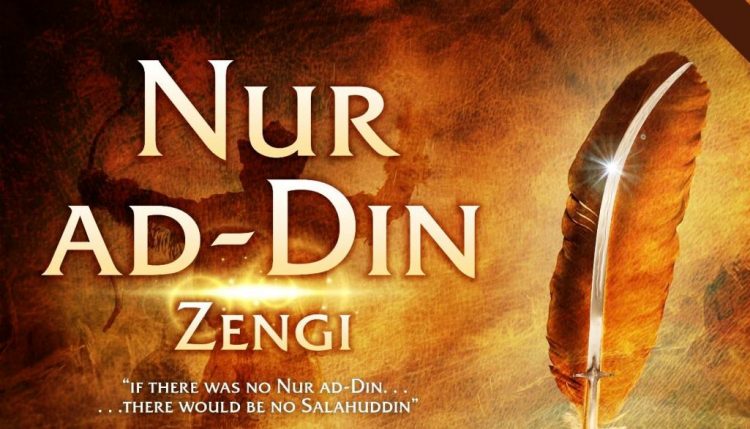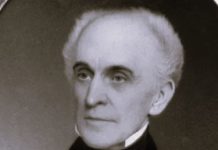Sultan Noor-ud-Din Zangi also in Turkish known as Nûreddin Mahmud Zengi was one of the most courageous, shrewd, and belligerent rulers in Islamic history. He redeemed the world’s largest Christian alliance. It is said that Christians used his name to intimidate their children to shut up Zangi will come. Abu Al-Qasim Mahmud Ibn Emad-ud-Din Zangi was the son of Emad-ud-Din Zangi, the founder of the Zangi Empire, (Oghuz Turkish Zengid dynasty) who made a name for himself in history.
Sultan Noor-ud-Din Zangi was born on 5 February 1118. He annexed the surrounding small Muslim states to his kingdom in order to establish a strong Islamic government before taking back the first Qiblah of Jerusalem from the Christians. Initially, Nur-al-Din’s capital was Aleppo.
In 549 AH, he captured Damascus and made it his capital. He invaded the crusader state of Antioch and captured several forts, and later the Muslim state of Aedesa. It also thwarted the Christians’ attempt to eliminate it. Attempts to capture Damascus during the Second Crusade were thwarted with the help of eminent generals Saif-al-Din al-Ghazi and Moin al-Din, paving the way for the expulsion of Christians from Jerusalem.
They won the war and took back Jerusalem. At that time, the Fatimid regime in Egypt was very weak, and since Egypt was annexed to Palestine, the Christians wanted to occupy it. Seeing this, Sultan Noor-ud-Din Zangi sent an army and occupied Egypt in 564 AD, thus ending the Fatimid rule.
Sultan Noor-ud-Din Zangi also has a very unique honor that he did not visit the shrine of the Holy Prophet This blissful event is found in almost all history books. Sheikh Muhammad Abdul Haq Mohaddess Dehlavi also mentioned this in his book.
According to Samhudi, the Christians hatched this conspiracy in 557 AH. At that time the name of the king of Syria was Sultan Nour al-Din Zangi and his advisor was Jamal al-Din Isfahani. One night after the Tahajjud prayer, Sultan Noor-ud-Din Zangi saw in a dream that the Holy Prophet (sws) was pointing to two red-haired men and saying to the Sultan, “Save me from their evil.”
The Sultan got up in a hurry. He performed Wudhu, performed Nafl, and then his eye was affected. Why are you sitting here after dreaming? Do not mention this to anyone now and leave for Madinah immediately. “The next day the Sultan left for Madinah with twenty special people and many gifts and arrived there on the evening of the sixteenth.
The Sultan visited the Holy Prophet’s shrine and sat in the Prophet’s Mosque. He announced that the people of Madinah should reach the Prophet’s Mosque where the Sultan would distribute gifts among them. People came and went and the Sultan kept giving gifts to everyone who came.
During this time he kept looking at everyone, but he did not see the two faces that he had been shown three times in one night. Sultan asked the audience. “Has every citizen of Madinah met me?” The answer was yes. The Sultan asked again. “Are you sure every citizen has met me?” This time the audience said. “Except for two men.”
The secret was almost revealed. Sultan asked. “Who are they and why didn’t you come to get your gift?” It is said that these are two pious people from Morocco who are fasting and praying. Day and night they send blessings and peace upon the Holy Prophet (PBUH) and go to the Ka’baa Mosque every week. They are generous and hospitable. Don’t take anyone’s gift.
The Sultan said. “Good morning!” and ordered that both of them be called immediately to receive their gifts. When he received this special message, he said Praise to be to Allah. We have everything that Allah has given us and we do not need any gifts or alms.”
When this answer was conveyed to the Sultan, he ordered that it be presented to both of them immediately. Orders were immediately complied with. One glimpse was enough to identify him, but the Sultan controlled his anger and asked. “Who are you? Why are you here?” “We are from Morocco. We came for Hajj and now we want to live in the shadow of the Holy Prophet’s shrine,” he said.
Sultan Noor-ud-Din Zangi said sternly. “Have you sworn to lie?” Now they are silent. Sultan asked the audience. Where are they living? ”It was reported that in a house near the Holy Shrine of the Prophet, which was against the wall to the southwest of the Prophet’s Mosque. The Sultan immediately got up and entered the house with them.
The Sultan walked around the house. Suddenly he saw a mat lying on the floor in this house full of new and valuable things. It was as if the winds of the two Moroccans were blown away. The Sultan picked up the mat. There was a fresh carved under it. There was a tunnel.
The Sultan thundered and said, “Won’t you still tell the truth? They had no choice but, to tell the truth. He confessed that he was a Christian and that his ruler had given him a lot of money and equipment and sent him from Morocco as a pilgrim to Hijaz on the plan that he would somehow follow the example of the Holy Prophet. Bring the body out of the holy shrine.
In order to carry out this nefarious plan, he used Hajj as an excuse and after that, he could rent a house closest to the Holy Prophet’s shrine. He took it and started his nefarious work. Every night they would dig a tunnel facing the Holy Shrine and every morning they would fill the excavated mud in leather bags and take it to Janat al-Baqi ‘and scatter it on the graves.
He said that his nefarious campaign was in its final stages when one night with heavy rain there was a thunderclap like an earthquake and now that his work was nearing completion, how could the Sultan not reach Madinah? ۔ The Sultan would listen to them and cry and at the same time say, “My destiny that this slave was chosen from all over the world for this service.”
Sultan Noor-ud-Din Zangi ordered that both of them be killed. And a ditch should be dug around the Holy Shrine and it should be filled with molten lead so that no one will think of such a heinous act in the future. The above incident is of 558 AH (according to 1142 AH).
Sultan Noor-ud-Din Zangi also built a platform near the Holy Shrine to guard these tombs at all times. This platform still exists and is on the right as you enter from Bab-e-Jibreel. Some pilgrims consider it a place of Safa, although the place of the Companions of Safa was inside the Prophet’s Mosque, while the platform was outside the walls of the mosque at that time.
Walk north from Astana Ayesha to determine the location of Safa’s companions. (the opposite direction of the qiblah). Or that it was opposite the old Bab-e-Jibreel. After the conquest of Egypt, Nur-al-Din began preparations to attack Jerusalem. He built a high-rise pulpit to house the Omar Mosque in Jerusalem.
He wished that after the conquest of Jerusalem he would keep this pulpit in his hands but God did not approve of it. Sultan Noor-ud-Din Zangi was still preparing for the attack when Zangi was poisoned by the Hashishin. Didia caused an inflammation in his throat which led to his death.
He died on May 15, 1174. At the time of his death, Nooruddin was 58 years old. Sultan Nooruddin Zangi was like his father in bravery. Once in the battle, seeing him repeatedly entering the ranks of the enemies, one of his companions Qutbuddin said: “O our king! Do not put yourself to the test.
If you are killed, the enemy will conquer this country and the condition of the Muslims will be ruined. ”When Sultan Noor-ud-Din Zangi heard this, he became very angry and said: “Qutbuddin! Stop the tongue, you are blaspheming. Who was the protector of this religion and country before me except him?
If I am not there, he will hand over this responsibility to someone else. Sultan Noor-ud-Din Zangi himself abided by the Shariah and also bound his companions. Seeing him, others imitated him, which instilled in the people a passion to practice Islam and they were ashamed to mention the deeds against the Shariah.
He established a network of madrassas and hospitals in the empire. His stories of justice were well known. He lived a very private life, never spending the money of the treasury on personal expenses. With the booty, he bought a few shops, which he used to cover his expenses.
He did not build large palaces for himself but used the money of the treasury to establish madrassas, hospitals and inns, and other public welfare projects. I just do things. In Damascus, he established a magnificent hospital that was unparalleled in the world.
Medicine was also provided free of cost to the patients and food and accommodation expenses were also paid by the government. Sultan Noor-ud-Din Zangi had suspended all illegal taxes. He listened to and investigated the grievances of the victims himself. Because of these virtues and deeds of Noor-ud-Din, Ibn Athir, a historian of the time, wrote: I have never seen a better ruler than Abdul Aziz Zangi.







